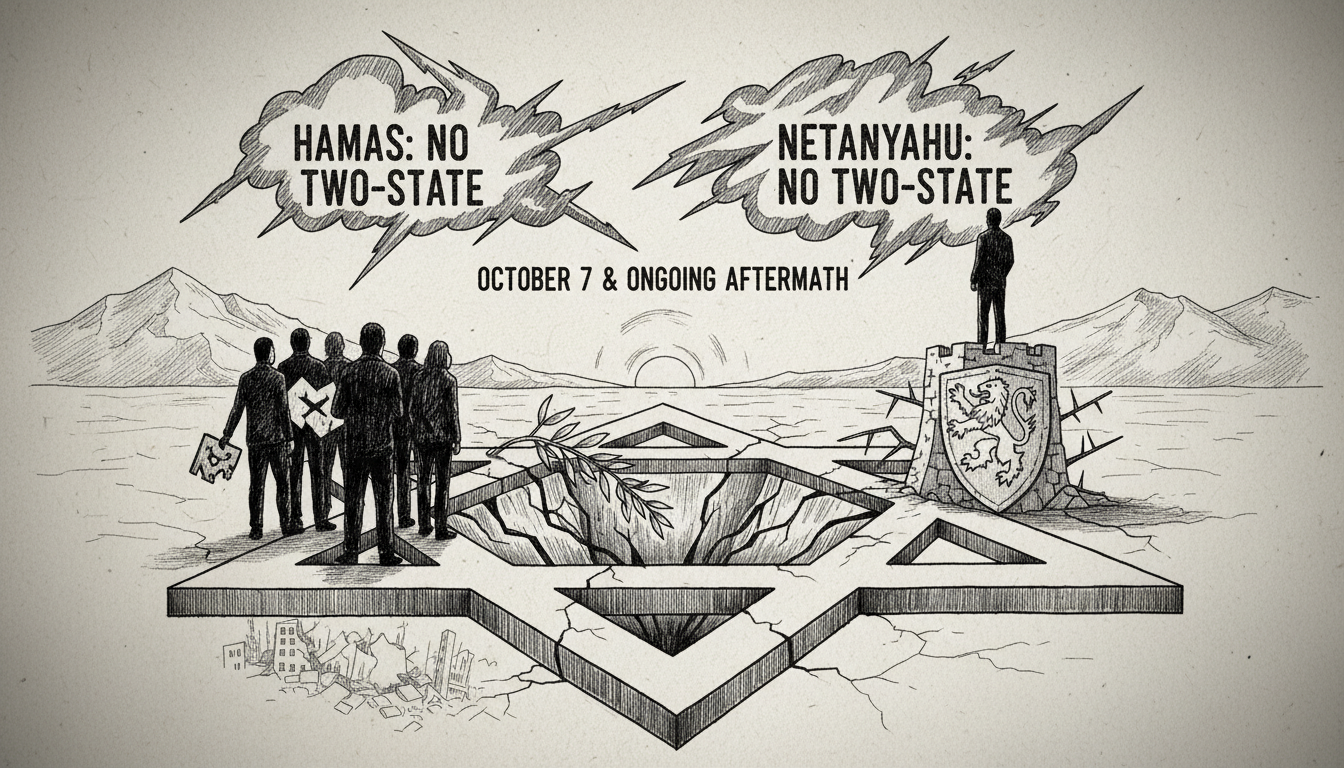The world now hopes US President Donald Trump succeeds in pressuring both sides to reach a ceasefire. Would Hamas leaders have launched their massacre of Israelis on October 7, 2023, if they knew what would follow? They clearly understood Israel would respond forcefully based on past experience. But were they prepared for the Israeli war machine to reduce nearly all of Gaza to ruins? Did they anticipate tens of thousands of Palestinian civilians would die in a prolonged and exceptionally brutal war?
Hamas likely knew the consequences. Like other political movements that accept violence to achieve goals, Hamas has never valued civilian lives whether among opponents or their own people. The Islamist jihadist movement aims to establish an Islamic state. Hamas rejects a two-state solution and denies Israel's right to exist.
Israeli Prime Minister Benjamin Netanyahu also opposes a two-state solution. Throughout his central role in Israeli politics, he has consistently worked against such an arrangement.
The October 7 terror attack happened under Netanyahu's watch. 1,200 people were massacred. Children died before their parents' eyes, parents before their children. People were tortured, burned, and raped. The events represented pure evil.
Israel went into darkness. Many say most Israelis remain mentally where they were on October 8, 2023, the day after the attack. Time has stood still for them while the world watches events in Gaza. Israelis cannot move forward until all hostages return home both the dead and those still living.
An abyss now separates Israelis and Palestinians. Both sides believe the other wants to destroy them. In this climate, feeling empathy or sympathy for the other side becomes difficult. Fear and hatred have replaced hope and belief in a better future where both peoples could have freedom and security.
The tragedy became a catastrophe specifically because Netanyahu was prime minister when the attack occurred. Any Israeli government would have responded with immediate war. There still would have been worldwide demonstrations. Yet much of the world would have accepted such a defensive war.
But suspicion quickly emerged both within Israel and internationally that Netanyahu prioritized his personal political interests. Instead of uniting the nation and establishing a broad coalition government, he allowed his extremist cabinet members to set the war's parameters.
Military leaders and former prime ministers soon expressed concern about the Gaza war's direction. Many said months ago that Hamas had been largely neutralized. They argued that completely eliminating the movement was currently impossible and the priority should be bringing hostages home.
They also observed how the warfare and Netanyahu's extremist ministers were pushing Israel toward the fringes of the international community. Some describe Israel's current global position using terms like pariah or outcast.
Meanwhile, Israeli society remains deeply divided. Rather than standing united against an external enemy, questions arise about whether Israel is cracking apart. This would represent a tragedy for both Israel and the broader Middle East.
The dark day two years ago led to more darkness. Greater distance separates the sides. A solution where Israelis and Palestinians can live side by side without fear seems further away than ever.
With current leadership, the situation appears hopeless. Neither Palestinians nor Israelis have leaders with the ability or will to begin the long, difficult journey toward something different and better.
Whoever eventually takes on that task will need help. Mostly from difficult neighbors. With pressure from the United States. If any answer exists to this nearly unsolvable conflict, it lies in the Middle East itself not in Europe or Norway.
Arab countries have never shown particular concern for Palestinians. Palestinians have truly been failed by everyone. Yet in recent years, several Arab nations saw benefit in improving relations with Israel. Their leaders observed Israeli innovation and economic growth and wanted to participate.
In 2020, some Arab countries normalized relations with Israel. This occurred after a unified Arab world had denied the Israeli state's right to exist since its establishment in 1948.
There was reason to believe powerhouse Saudi Arabia was preparing to join these agreements in fall 2023. This may have prompted Hamas to launch its October 7 terror attack.
If this process restarts and the Arab world makes demands to Israel on behalf of Palestinians, this might represent the least impossible of all impossible paths forward.
But the backdrop remains exceptionally bleak. The question is whether deep wounds can heal. Or whether what happened on October 7 and all the days since has crushed hope for the foreseeable future. The current leadership on both sides appears more focused on political survival than achieving lasting peace.

